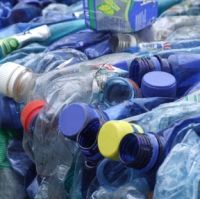

The plastics recycling industry is facing an investigation into suspected widespread abuse and fraud within the export system, and there are concerns that the world is about to close the door on UK packaging waste.
The Environment Agency has confirmed it has set up an investigative team, and is "pursuing several lines of enquiry" in a bid to deal with complaints that organised criminals and firms are abusing the system.
Currently, around two-thirds of our plastic packaging waste is sent abroad every year, including plastic bottles, yoghurt pots and other items. According to Agency data, six UK exporters of plastic waste have had their licenses suspended or cancelled in the last three months. One firm has had 57 containers of plastic waste stopped at UK ports in the last three years due to concerns over the contamination of waste.
Exporters charge retailers and manufacturers a rate per tonne for plastic waste (known as "PERNS", which are currently running at around £60-70 a tonne), and retailers are allowed to use these payments as proof they are meeting their recycling obligations. But MPs have criticised the system for being open to fraud.
According to the Guardian, the allegations the Environment Agency are believed to be investigating include:
The newspaper argue that there is a huge difference between the amount of packaging exports recorded by HM Customs, compared with the amount UK exporters claim to have shipped. They claim around 35,135 tonnes more plastic has been exported than actually recorded.
Earlier this year, a National Audit Office inquiry warned that the current system was open to abuse and was not being monitored properly. It said that the financial incentive for companies to fraudulently claim they had recycled plastic packaging was "higher than for any other material". There is also the risk that some of it is not recycled under equivalent UK standards, and is instead sent to landfill or contributes to pollution.
China and Vietnam have already stopped importing foreign plastic waste over concerns about high contamination levels. This in turn effects UK local authorities, some of which have cut their plastic recycling services because of a build up of waste.
For more information, see the: